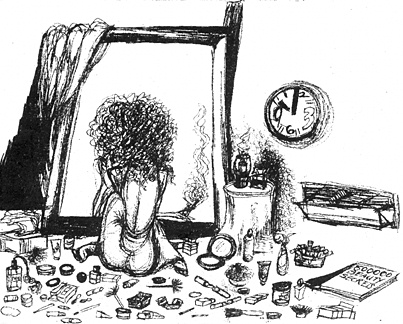All Nonfiction
- Bullying
- Books
- Academic
- Author Interviews
- Celebrity interviews
- College Articles
- College Essays
- Educator of the Year
- Heroes
- Interviews
- Memoir
- Personal Experience
- Sports
- Travel & Culture
All Opinions
- Bullying
- Current Events / Politics
- Discrimination
- Drugs / Alcohol / Smoking
- Entertainment / Celebrities
- Environment
- Love / Relationships
- Movies / Music / TV
- Pop Culture / Trends
- School / College
- Social Issues / Civics
- Spirituality / Religion
- Sports / Hobbies
All Hot Topics
- Bullying
- Community Service
- Environment
- Health
- Letters to the Editor
- Pride & Prejudice
- What Matters
- Back
Summer Guide
- Program Links
- Program Reviews
- Back
College Guide
- College Links
- College Reviews
- College Essays
- College Articles
- Back
Media & Me MAG
Contrary to some people’s preconceptions about disability and disabled people, my experiences with being both Korean and disabled have been fairly positive. I have not been a victim of bullying, nor have I ever been severely discriminated against.
However, growing up in a world where whiteness (or proximity to whiteness) and able-bodiedness is heralded as a priority, perhaps the hardest thing for me is not having adequate representation in the media.
Not having any media representation leads to a skewed view of oneself. Whether it be through ableism or racism, the fact is that our society causes children with disabilities and those of color to hate themselves.
By not seeing myself represented in the books, TV shows, or movies I enjoyed, I started to view myself as a background character in my own story. It was like looking into a mirror and not seeing a reflection. By not representing marginalized groups, books, TV shows, and movies are sending a message that these people are somehow deviations from the “standard norm.”
The mainstream feminist movement has pushed for better, more complex female characters. Although some movies and TV shows have answered that call with portrayals of strong women, the actresses are mostly white and able-bodied. The outcry for more complex portrayals of people of color, people with disabilities, and people of color with disabilities has been silenced by those who claim our reality is not realistic. The unique intersections of people are what make us human, and the media we consume should reflect that.
I am a third-generation Korean-American teenage girl who was born with a cleft palate. Every day is a battle – a battle with a world that refuses to acknowledge my existence. But I have learned that my confidence in being unapologetically me is a weapon against a society that is hell-bent on destroying it.

Similar Articles
JOIN THE DISCUSSION
This article has 0 comments.
